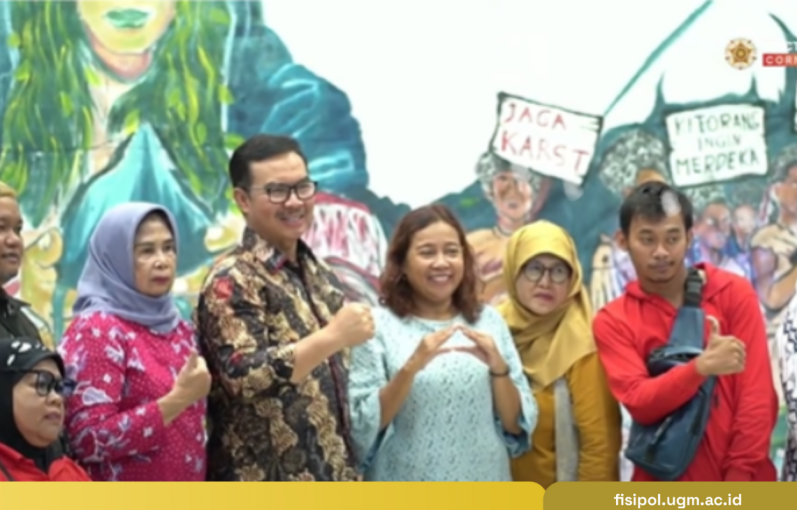
Regarding the issue of inclusivity, there are a lot of issues and problems that are not yet accommodated and given a concrete solution. Starting from the physical aspect, in regards to infrastructure, there are many cases of misuse, like the sidewalk for example. With that in mind, this makes sidewalks in Yogyakarta less pedestrian-friendly, especially for people with disabilities . Furthermore, indigenous faith groups have not been fully involved in the process of development.
Next, regarding the issue of employment, there are still many vulnerable workers that do not prosper in Yogyakarta. While it is stated that Yogyakarta has the second highest level of Human Development Index (HDI) nationally, it is clear that the wages here are still low and there are many workers from the informal sector who do not receive proper safety nets from the government. People with disabilities have also not been given proper opportunities to engage in the labor sector as a whole
It doesn’t end there, as some residents have also stated their aspirations regarding the environmental crisis and the issue of proper housing. It starts from improper waste management, which does not focus on intervening on the upstream level, especially for industries and corporations that produce the most waste. Next, the access to housing which has gotten even more costly has made it even harder for residents to own a house. Not only that, there are still many slums in Yogyakarta facing sanitation problems.
In accordance with its identity as a student city, the issue of education is also highlighted in today’s participative dialogue. There are several issues of inequality mentioned during the dialogue, such as the illegal extortions done in schools. Education financing for low–income families until they reach undergraduate level became one of the solutions given by residents in order to make education more accessible for everyone. From the aspect of educators, it is suggested that rotation of teachers is needed in order to improve the quality of teaching and learning for students and educators themselves.
The high level of social mobility that Yogyakarta has demands a holistic perspective in problem solving. “With all things said and done, a concrete solution requires coordination across administrative regions, which we currently do not have in Indonesia. Coordination at the multi-governance level is not yet clear. The city of Yogyakarta that borders Sleman is clearly the city of Yogyakarta, I just so happen to live in Banguntapan, which borders Bantul besides Kotagede,” Linda mentioned.
